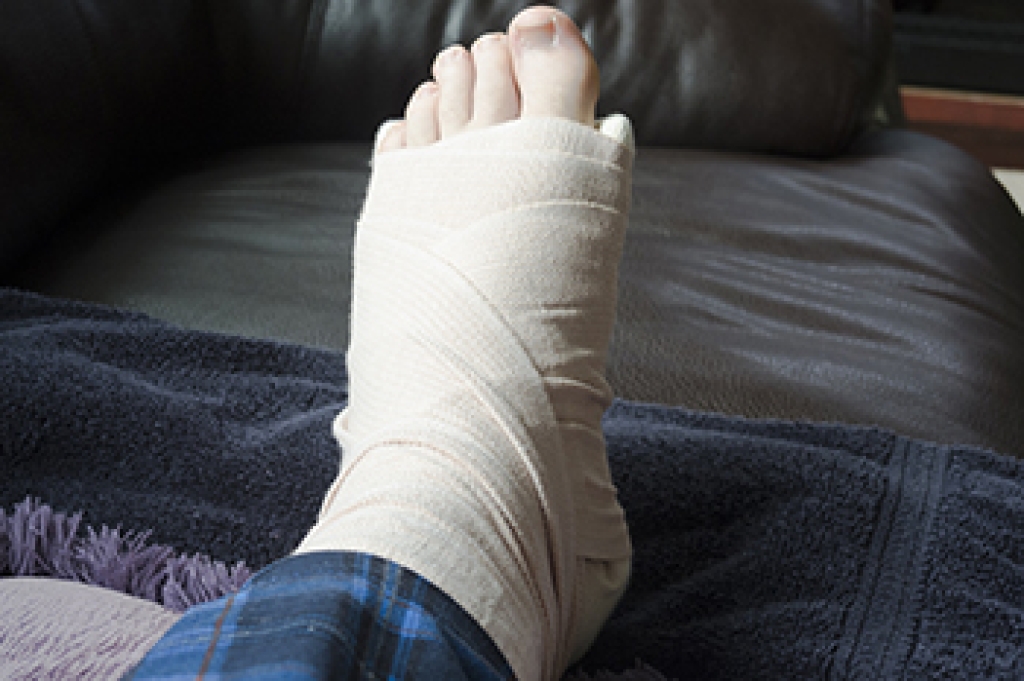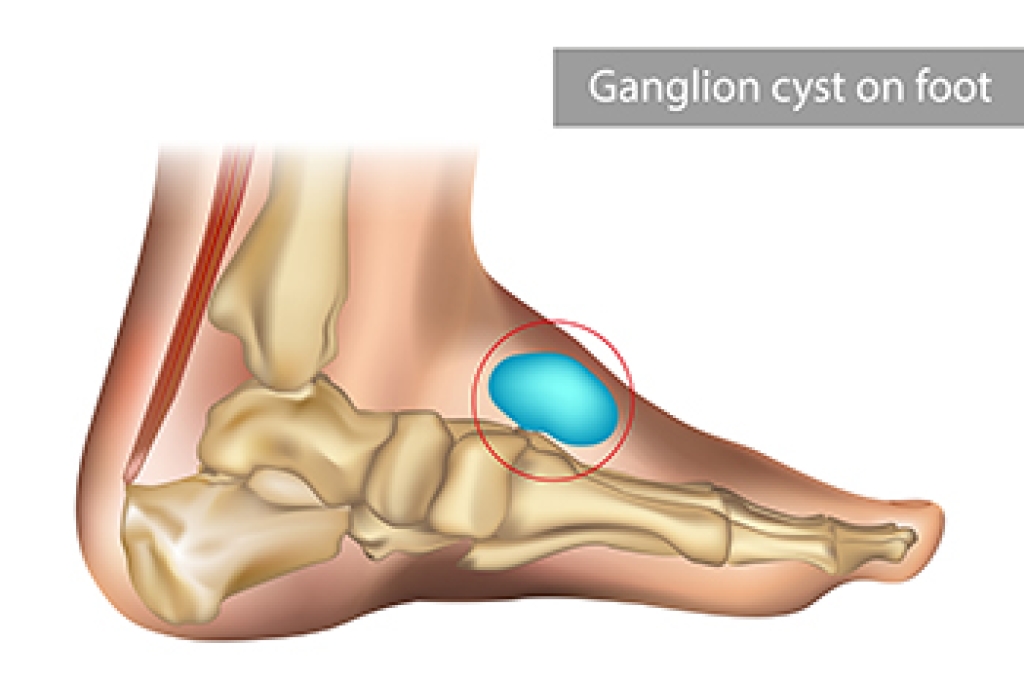Connect With Us
Blog
Blog
When to See a Podiatrist

Knowing when to see a podiatrist can help prevent minor foot concerns from progressing into more serious problems. Ongoing pain in the foot, toe, or ankle is a common reason to seek care, especially if it affects walking, standing, or daily activities. Changes in foot shape, recurring calluses or corns, nail disorders, heel discomfort, or swelling that does not improve should also be evaluated. Sports injuries, workplace strain, and age-related changes can place stress on bones, joints, tendons, and ligaments, leading to instability or limited movement. A podiatrist is medically trained to assess foot structure, identify underlying causes, and create an appropriate treatment plan. Options include footwear guidance, orthotics, targeted therapy, or other procedures depending on the problem. If you have foot, toe, or ankle problems, it is suggested that you make an appointment with a podiatrist for an exam, diagnosis, and treatment.
If you are experiencing pain in the feet or ankles, don’t join the stubborn majority refusing treatment. Feel free to contact one of our doctors from Advanced Podiatry. Our doctors can provide the care you need to keep you pain-free and on your feet.
What Is a Podiatrist?
Someone would seek the care of a podiatrist if they have suffered a foot injury or have common foot ailments such as heal spurs, bunions, arch problems, deformities, ingrown toenails, corns, foot and ankle problems, etc.
Podiatric Treatment
A podiatrist will treat the problematic areas of the feet, ankle or lower leg by prescribing the following:
- Physical therapy
- Drugs
- Orthotic inserts or soles
- Surgery on lower extremity fractures
A common podiatric procedure a podiatrist will use is a scanner or force plate which will allow the podiatrist to know the designs of orthotics. Patients are then told to follow a series of tasks to complete the treatment. The computer will scan the foot a see which areas show weight distribution and pressure points. The podiatrist will read the analysis and then determine which treatment plans are available.
If you have any questions, please feel free to contact our offices located in Needham, Norwood, and Hanover, MA . We offer the newest diagnostic and treatment technologies for all your foot care needs.
Types of Metatarsal Fractures in the Foot

Metatarsal fractures are breaks in one of the five long bones in the forefoot that connect the toes to the midfoot. These injuries are classified by location. A fracture may involve the head, shaft, or base of a metatarsal. Shaft fractures often follow twisting forces or direct impact and cause swelling and pain with walking. Stress fractures usually affect the second or third metatarsal and develop gradually from repeated loading. The fifth metatarsal is fractured often and includes avulsion fractures, Jones fractures, and stress breaks near the base. Jones fractures need careful identification because healing differs from other fractures. Fractures of the first through fourth metatarsals may also involve midfoot ligaments and affect stability. A podiatrist can identify the fracture type, order imaging, and guide care to support healing. For help dealing with metatarsal fractures, it is suggested that you make an appointment with a podiatrist.
A broken foot requires immediate medical attention and treatment. If you need your feet checked, contact one of our doctors from Advanced Podiatry. Our doctors can provide the care you need to keep you pain-free and on your feet.
Broken Foot Causes, Symptoms, and Treatment
A broken foot is caused by one of the bones in the foot typically breaking when bended, crushed, or stretched beyond its natural capabilities. Usually the location of the fracture indicates how the break occurred, whether it was through an object, fall, or any other type of injury.
Common Symptoms of Broken Feet:
- Bruising
- Pain
- Redness
- Swelling
- Blue in color
- Numbness
- Cold
- Misshapen
- Cuts
- Deformities
Those that suspect they have a broken foot shoot seek urgent medical attention where a medical professional could diagnose the severity.
Treatment for broken bones varies depending on the cause, severity and location. Some will require the use of splints, casts or crutches while others could even involve surgery to repair the broken bones. Personal care includes the use of ice and keeping the foot stabilized and elevated.
If you have any questions, please feel free to contact our offices located in Needham, Norwood, and Hanover, MA . We offer the newest diagnostic and treatment technologies for all your foot care needs.
Ganglion Cysts of the Foot

Ganglion cysts are fluid filled lumps that often form near joints or tendons in the foot or ankle. They develop when joint fluid leaks out and becomes trapped in a small sac, often due to irritation, overuse, injury, or changes in joint mechanics. Some cysts cause no symptoms, while others lead to aching pain, pressure, or nerve irritation, especially when shoes rub against the area. Treatment depends on discomfort and location. Options include monitoring the cyst, modifying footwear, or using padding to reduce pressure. If symptoms persist, a podiatrist may drain the cyst or recommend a minor procedure to remove it and reduce recurrence. A podiatrist can also evaluate foot structure and movement patterns that may contribute to cyst formation, helping improve comfort, mobility, and long-term foot health. If you think you might have a ganglion cyst, it is suggested that you see a podiatrist for a proper diagnosis and treatment.
Foot Pain
Foot pain can be extremely painful and debilitating. If you have a foot pain, consult with one of our doctors from Advanced Podiatry. Our doctors will assess your condition and provide you with quality foot and ankle treatment.
Causes
Foot pain is a very broad condition that could be caused by one or more ailments. The most common include:
- Bunions
- Hammertoes
- Plantar Fasciitis
- Bone Spurs
- Corns
- Tarsal Tunnel Syndrome
- Ingrown Toenails
- Arthritis (such as Gout, Rheumatoid, and Osteoarthritis)
- Flat Feet
- Injury (from stress fractures, broken toe, foot, ankle, Achilles tendon ruptures, and sprains)
- And more
Diagnosis
To figure out the cause of foot pain, podiatrists utilize several different methods. This can range from simple visual inspections and sensation tests to X-rays and MRI scans. Prior medical history, family medical history, and any recent physical traumatic events will all be taken into consideration for a proper diagnosis.
Treatment
Treatment depends upon the cause of the foot pain. Whether it is resting, staying off the foot, or having surgery; podiatrists have a number of treatment options available for foot pain.
If you have any questions, please feel free to contact our offices located in Needham, Norwood, and Hanover, MA . We offer the newest diagnostic and treatment technologies for all your foot care needs.
Methods for Dealing With Clubfoot

Clubfoot is a condition present at birth where the foot turns inward and downward, affecting alignment and walking if not addressed. Management often begins early, when bones and soft tissues are more flexible. Gentle, guided stretching and serial casting are commonly used to gradually reposition the foot over several weeks. After correction, bracing helps maintain alignment as a child grows and reduces the risk of recurrence. In some cases, a minor procedure to lengthen the Achilles tendon may be recommended to improve ankle motion. More complex deformities may require surgery to correct bone position and balance muscle forces. Ongoing monitoring is important, since growth can influence foot structure and gait. A podiatrist plays an important role by evaluating progress, guiding bracing use, and addressing concerns related to walking, shoe wear, and comfort over time. If your child has clubfoot, it is suggested that you make an appointment with a podiatrist for an exam and treatment.
Congenital foot problems require immediate attention to avoid future complications. If you have any concerns, contact one of our doctors of Advanced Podiatry. Our doctors can provide the care you need to keep you pain-free and on your feet.
Congenital foot problems are deformities affecting the feet, toes, and/or ankles that children are born with. Some of these conditions have a genetic cause while others just happen. Some specific foot ailments that children may be born with include clubfeet, polydactyly/macrodactyly, and cleft foot. There are several other foot anomalies that can occur congenitally. What all of these conditions have in common is that a child may experience difficulty walking or performing everyday activities, as well as trouble finding footwear that fits their foot deformity. Some of these conditions are more serious than others. Consulting with a podiatrist as early as possible will help in properly diagnosing a child’s foot condition while getting the necessary treatment underway.
What are Causes of Congenital Foot Problem?
A congenital foot problem is one that happens to a child at birth. These conditions can be caused by a genetic predisposition, developmental or positional abnormalities during gestation, or with no known cause.
What are Symptoms of Congenital Foot Problems?
Symptoms vary by the congenital condition. Symptoms may consist of the following:
- Clubfoot, where tendons are shortened, bones are shaped differently, and the Achilles tendon is tight, causing the foot to point in and down. It is also possible for the soles of the feet to face each other.
- Polydactyly, which usually consists of a nubbin or small lump of tissue without a bone, a toe that is partially formed but has no joints, or an extra toe.
- Vertical talus, where the talus bone forms in the wrong position causing other bones in the foot to line up improperly, the front of the foot to point up, and the bottom of the foot to stiffen, with no arch, and to curve out.
- Tarsal coalition, when there is an abnormal connection of two or more bones in the foot leading to severe, rigid flatfoot.
- Cleft foot, where there are missing toes, a V-shaped cleft, and other anatomical differences.
- Macrodactyly, when the toes are abnormally large due to overgrowth of the underlying bone or soft tissue.
Treatment and Prevention
While there is nothing one can do to prevent congenital foot problems, raising awareness and receiving neonatal screenings are important. Early detection by taking your child to a podiatrist leads to the best outcome possible.
If you have any questions, please feel free to contact our offices located in Needham, Norwood, and Hanover, MA . We offer the newest diagnostic and treatment technologies for all your foot care needs.
Blog Archives
- 2026
- 2025
- 2024

